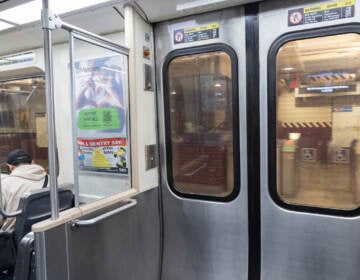The Parent Trap: A roller coaster life with autism
The comment was the result of a quarrel, which is not uncommon between me and my 15-year-old son. The quarrel’s subject was something meaningless, perhaps the lack of computer time or my 10th attempt that day to stop him from eating.
But meaningless things become extremely meaningful to my son. He fixates on the minutiae the rest of us simply allow to run off our backs. And so, we often quarrel. I try to get him to understand that we don’t have to go to the dollar store every afternoon. But the trip is as important to him as a ride on the Space Shuttle.
Finally, in his exasperation, he yelled at me, “You don’t know what it’s like to live with autism!”
It broke the tension, and even gave me a brief chuckle. The truth is I’ve been living with autism for almost as long as my son.
Continue reading to read more about Pat, his son and how they handle autism. Also, be sure to read about Pat’s son’s latest developments.I was the last one to admit that our son was a bit different. All I saw was a little boy who seemed to possess an amazing memory. He started reading not long after his first birthday, and quickly breezed through the Dr. Seuss catalog. He had an infectious laugh, and I tagged him as an old soul because of his ability to connect with adults more easily than with other children.
My wife started to recognize little things about his nature, such as a propensity to repeat everything that he heard on television, over and over. His first fixation was cars, although in my naiveté, I figured that it was just a sign of his intelligence. Family and friends would marvel at his ability to recognize the make and model of most automobiles from blocks away.
But he started to acquire a temper, one that would surface at the most inopportune times. I can remember one time at the Jersey Shore, asking for our orders at a restaurant to be packed to go, while apologizing to the startled waitresses. Meanwhile, my screaming son and embarrassed wife quickly left the establishment under the disapproving glares of many patrons.
And just like that, it would be over, and the happy child would return. Even more unnerving, he would have no memory of the incident. It was as if it had never happened.
Finally, just after his fourth birthday, his daycare center suggested our son be tested. I wasn’t worried. He was just a high- spirited boy, and the tests would prove there was nothing wrong that a little more work from his parents couldn’t conquer. That optimism quickly went away when I saw my wife’s post-diagnosis face.
Like most people at that time, I knew little about autism, beyond Rainman and the final episode of St. Elsewhere. In my mind, autistic children were almost non-communicative. I learned that our boy has a type of autism called Asperger’s Syndrome.
Asperger’s children – or, as many of them like to be called, Aspergians – are very verbal, but also have a very difficult time connecting with other people socially, especially children their own age.
I think that it is the only time that I’ve ever seen my wife upset that she was right. But while I beat myself up for not getting him help sooner, she went right to work finding therapies and placement in the right daycare center. She found out about Individual Educational Plans, which have become so important to our son’s development. And the support services that she personally worked out for him not only have helped him to become a much more rounded person, but also enabled her to become so well-versed in the field that she now works to help disabled people of all ages.
There have been many pitfalls over the years. Friends who we thought would stick around with him for life have fallen by the wayside. New friendships have been brief, or have ended badly. He still obsesses, now over trains. We’ve tried a variety of prescription and nonprescription methods, including vitamin B pills and a casein-free diet. But nothing has worked better than what has been done by his teachers, therapists and yes, parents.
He is still amazing. Out of the blue, he decided to learn Japanese, and did so in about three weeks. Nobody believed that he was actually speaking the language, until we happened upon a family friend, who spent significant time in the Far East.
“Do you know your kid speaks Japanese?” he asked me during a party. It was one of the proudest moments of my life. He is an honor student at his high school, but still occasionally gets agitated and argues with teachers and staff. The saving grace is that so many people love him, and the work is considered worthwhile for all of us.
April, as many readers know, is Autism Awareness Month. Today, it’s pretty hard not to be aware of autism, with one in every 150 children diagnosed with the affliction. There is no cure. I can’t tell you how hard that is to type. But for many of us, there is hope. My hope is that someday, my son can go to work or school without being agitated and obsessed. I hope that he finds a job and a financial future without worrying if his boss is going to fire him for yelling at everyone in Japanese.
But my biggest hope for him is friends. Maybe, with more light shed on the subject, other people will understand autism better, and will see my son for what he is – an intelligent, interesting individual, with a lot of love to give. And that is something to live with that everybody deserves.
Epilogue: This column was first printed last year in the Northeast News Gleaner, but I asked my editor if we could run it again, and she graciously agreed. Since that time, our son is now 16 and still doing well at school. His temper is usually in check, but he still has his moments. But I’m happy to say that he has a small group of friends, and often rides his bike to the playground or their homes to see them.
But living with a person who has autism is still like sitting in that roller coaster, waiting at the top of the long climb, hoping that the drop isn’t too steep or the corners too narrow. And, after the ride is over, there’s always a chance that you are right back in line, travelling up again.
The Parent Trap is a weekly column by Patrick P. McNally that will appear on NEastPhilly.com every Tuesday. See others here. Read other NEast Philly columns here.
WHYY is your source for fact-based, in-depth journalism and information. As a nonprofit organization, we rely on financial support from readers like you. Please give today.






